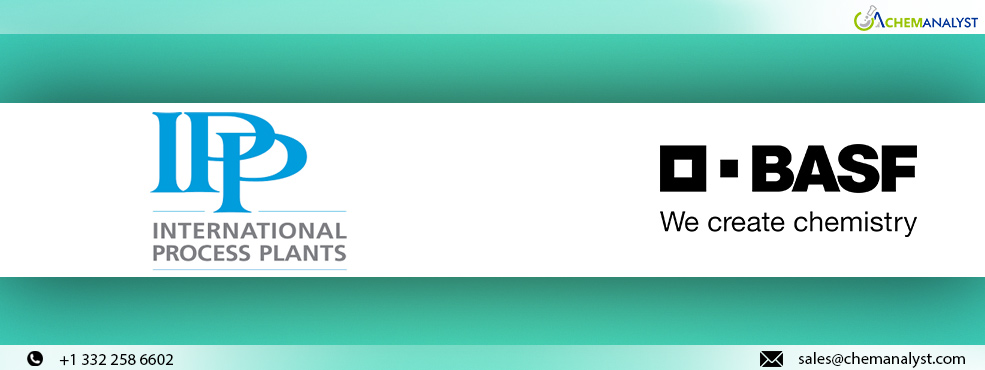Welcome To ChemAnalyst

BASF, alongside International Process Plants (IPP), a renowned global player in procuring and distributing process plants and equipment, has forged a partnership to promote ammonia, methanol, and melamine plants situated at BASF's Verbund site in Ludwigshafen, Germany. These plants have become accessible due to BASF's strategic adjustments at its Ludwigshafen facility, aimed at maintaining competitiveness amidst evolving market dynamics in Europe, as outlined in February 2023. BASF will sustain ammonia and methanol production through alternate facilities at the Ludwigshafen site. Both entities have opted not to divulge financial specifics of the arrangement.
The deal encompasses the comprehensive production facilities for ammonia (380,000 metric tons/year), methanol (165,000 metric tons/year), and melamine (51,000 metric tons/year). IPP is presenting these top-tier production facilities for potential relocation and sale to eligible purchasers with projects requiring such assets, seeking avenues for reduced capital expenditure and expedited project completion schedules.
Ronald Gale, President of International Process Plants, expressed enthusiasm about the inclusion of these premier ammonia, methanol, and melamine plants into their portfolio for relocation. He stated, "These facilities offer a substantial opportunity for enterprises aiming to enhance their production capabilities with established assets renowned for their energy and raw material efficiency. IPP is dedicated to securing a suitable destination for these assets, ensuring access to ample and cost-effective gas supply, or integrating them into green ammonia or methanol projects where they can sustain their efficient and productive operations.
The ammonia plant, producing 380,000 metric tons/year, utilizes 0.97 Tm3 of natural gas for both feedstock and fuel per ton of ammonia. Meanwhile, the melamine plant, with an annual output of 51,000 metric tons, demonstrates remarkable efficiency, consuming merely 2.6 tons of urea crystal per ton of melamine, coupled with a low energy demand of 0.27 Tm3 of natural gas per ton of melamine. As for the methanol unit, it operates as a synthesis loop, offering versatility for potential integration into green methanol projects utilizing available green feedstocks.
Ruediger von Watzdorf, Senior Vice President of Technology at BASF Monomers division, stated, "BASF is collaborating with IPP in the divestment of the inactive ammonia, methanol, and melamine plants to ensure the continued utilization of these well-maintained assets for chemical production. These units remained operational until 2023 and were decommissioned solely as a component of the structural enhancements to our production setup at the Ludwigshafen site. This sale signifies a more sustainable and economically viable approach to deploying these production facilities, offering a net benefit to the global process industry."
We use cookies to deliver the best possible experience on our website. To learn more, visit our Privacy Policy. By continuing to use this site or by closing this box, you consent to our use of cookies. More info.
